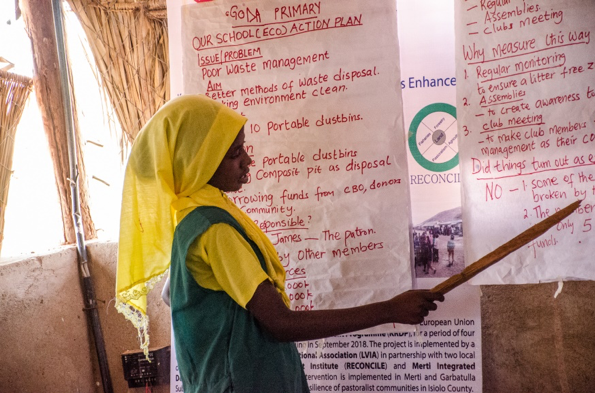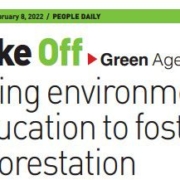
Transitioning to inclusive green economy requires a transformation of how people think and act. With ever increasing impacts of climate change, there is need for all members of the society and groups to participate and benefit equitably towards green economy. Climate change exacerbates cases of limited natural resources, limited employment opportunities which requires a radical change in the teaching and learning approaches to equip the vulnerable with relevant knowledge, skills and values needed to promote green living. Ensuring that vulnerable and marginalized youth complete free, equitable and quality basic education leading to relevant and effective learning opportunities; is one of the cornerstones for transitioning to sustainability (UNESCO, 2014)
Education for sustainable development (ESD) is an appropriate strategy for paradigm shift in the way education is delivered especially for the vulnerable youth in the face of climate change. The need for inclusive education is fronted by the UN Agenda 2030 for sustainable development. The vulnerability of the youth in the perspective of green economy calls for promoting an education that enhances social inclusion and improved livelihoods (UNESCO, 2016)
ESD is viewed as integral in learning for inclusive green economy for vulnerable and marginalized Youth. ESD develops competencies that enable and empower individuals to reflect on their own actions by taking into account their current and future social, cultural, economic and environmental impacts from both a local and a global perspective. Competencies for learning for an inclusive green economy for vulnerable and marginalized youth are provided. These include ability to analyse complex systems across different domains and across different scales in order to support green growth.
Strategies necessary for learning for an inclusive green economy among vulnerable and marginalized youth include; mainstreaming green economy into all forms of education and training including formal and informal, accelerating creation of green jobs and promoting green innovation and technology development by enhancing research in all aspects to inform opportunities in green economy; and reducing environmental health risks. Emphasis however should be laid on the need to re-orient the education and training to instil knowledge, skills, attitude and values to promote sustainable production and consumption for sustainable lifestyle.
By David Wandabi
Programs Officer – Education for Sustainable Development (ESD) & Eco-schools Coordinator, KOEE
References
UNESCO. (2014). Roadmap for Implementing the Global Action Programme on Education for Sustainable Development. Paris, France: UNESCO.
UNESCO. (2016). Education for people and planet: Creating Sustainable Futures for All. Paris: UNESC0.

 KOEE
KOEE 

Great content! Super high-quality! Keep it up! 🙂
Way cool! Some extremely valid points! I appreciate you writing this write-up and the rest of the website is really good. Berny Montgomery Morvin